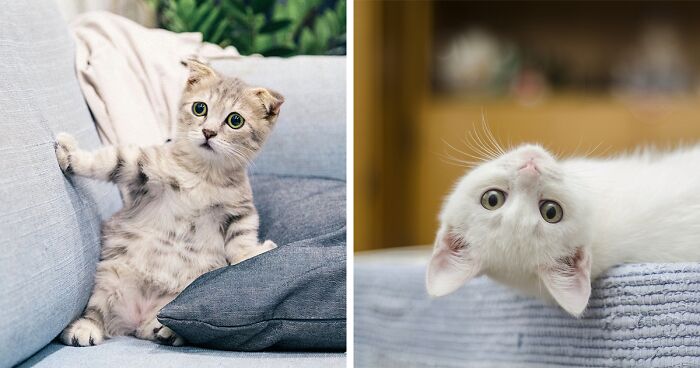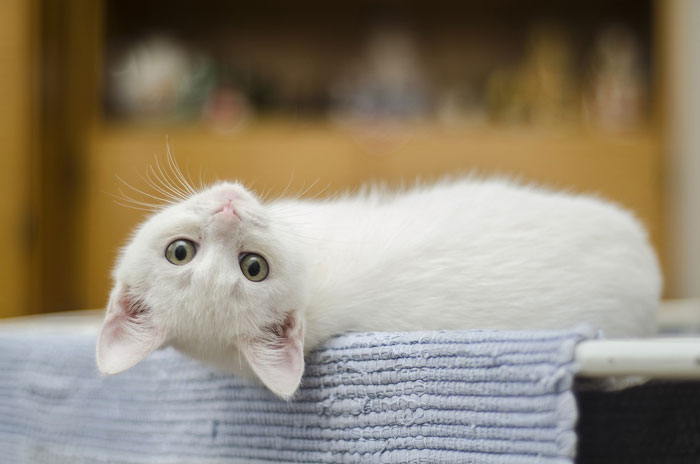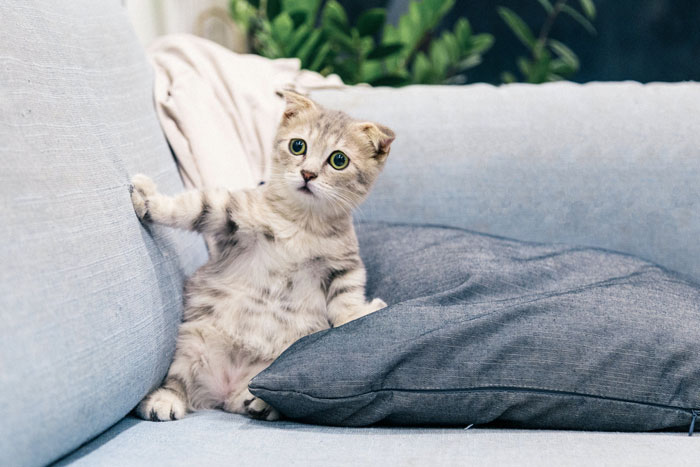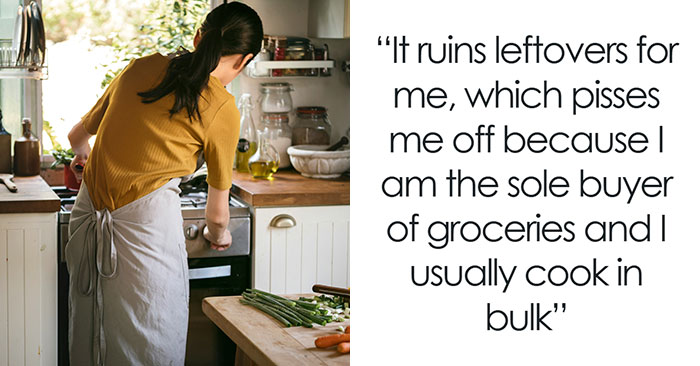There aren’t many things in the world that are more precious than a baby kitten. A brand new, blue-eyed ball of fuzz can make your heart swell to twice its size! While you grow into your new role as a fur parent, your pet’s health needs to be at the forefront of your mind.
Kittens starting to poop is an essential aspect of their development, and understanding their bowel movements is crucial for their health.
- Kittens may need help to stimulate bowel movements when just a few weeks old, ensuring daily poop for digestive health.
- Healthy kitten poop should be firm, not too hard, and free from foul smell, indicating good digestive health.
- Unhealthy-looking stool, such as watery or bloody, may signal infections or digestive issues needing vet attention.
- Signs of kitten constipation include distress, loss of appetite, or lethargy, requiring immediate care.
- Regular exercise, a balanced diet, and gradual food introduction are key to preventing constipation in kittens.
We’ll cover the timeline of when kittens start pooping, what healthy kitten poop looks like, how to help your kitten if constipated and when to consult the vet about kitten pooping habits, and common symptoms of constipation in kittens.
The information provided herein is for informational purposes only. Please refer to our disclaimer for more details..
When do kittens usually begin pooping?
It’s essential to monitor a young kitten’s bathroom habits. When kittens are just a few weeks old, they don’t start pooping on their own and may need help to stimulate bowel movements. You’ll want to ensure that the kitten poops every day to maintain its digestive health.
Sometimes, stimulating bowel movements in kittens is necessary. If you have orphaned or newborn kittens, you may need to stimulate their bowel movements by gently massaging their abdomen and anal area with a warm, damp cloth. This action mimics the grooming behavior of a mother cat, helping the kittens to start pooping regularly.
Morning stool is essential! Keep an eye on the consistency and odor of the kitten’s stool. Healthy kitten poop is firm but not too hard, and it should not have a foul smell. Monitoring their stool will help you identify any potential digestive issues early on.
Observing their poop consistency can be a helpful indicator of what’s healthy and what’s not. Healthy kitten poop should have the consistency of soft playdough. If the kitten’s stool is too hard or runny, it may indicate digestive problems that must be addressed.
Identifying normal bowel movements
Knowing what healthy kitten poop looks like can help you identify potential health issues in your pet. Normal litter box habits involve the kitten visiting the litter box at least once a day to pee and poop. Make sure you use quality litter to reduce smell.
Understanding what a normal litter box schedule looks like is important in understanding your cat’s health. A kitten with healthy bowel movements will regularly use the litter box to pee and poop. Keeping an eye on these habits will help you determine if any changes in their bathroom behavior may indicate a lack of stool production or diarrhea.
Unhealthy-looking stool can be alarming. If you notice that the kitten’s poop has a drastically different consistency or color, it could be a sign of an underlying health issue. Watery or bloody stool may indicate infections or digestive problems that require veterinary attention.
Monitoring pooping schedules might not be on your list of favorite things, but make it a part of your routine to analyze your kitten’s poop every day. Doing so lets you quickly spot any changes or abnormalities and take necessary steps to address the issue before it becomes more severe.
What are the common signs of constipation in kittens?
Recognizing signs of discomfort or distress in kittens can help you understand when they may need help with their bowel movements. If your kitten seems distressed, has a loss of appetite, or is lethargic, it may hinder a bowel movement or other health issues requiring attention. Keeping an eye on these symptoms can help you take the necessary steps to help your pet.
Recognizing when your kitten needs help with a bowel movement can play a pivotal role in getting in front of any pending issues. Young kittens, especially orphaned or newborns, may require bowel movement assistance. By recognizing that your kitten is not producing stool early on, you can take care of their needs and ensure their comfort.
Caring for orphaned or newborn kittens is essential. Be aware of their bowel movements and promptly address any lack of gut movement. An experienced veterinarian can provide advice and guidance to support you in caring for these young kittens.
Young animals are delicate in all aspects, so be sure to partner with a professional to ensure you give them the proper care they need.
What to do if your kitten is lacking stool production
If you suspect that your kitten is constipated, it’s essential to take steps to help them start pooping right away and prevent future episodes of constipation.
Common signs of a hindrance in bowel movements with kittens include straining in the litter box, producing small or hard stools, or not pooping at all. If you notice any of these symptoms, it’s time to take action to help your kitten feel comfortable again.
Become familiar with steps to help your kitten produce healthy stool. Aside from gently massaging their abdomen to stimulate bowel movements, you must ensure that your kitten stays hydrated while eating fiber-rich foods that can help the digestive system.
To prevent the lack of poop production in kittens, it’s essential to encourage regular exercise, provide them with a balanced diet, and introduce new food gradually to allow their digestive system to adjust. These habits can help maintain a healthy digestive system in your pet.
When to consult a veterinarian about kitten pooping habits
If your kitten’s poop doesn’t improve despite your efforts or if you notice any concerning signs, it’s crucial to consult a veterinarian to address potential health issues.
There can be health issues linked to irregular stool. Unhealthy poop in kittens may be linked to infections, parasites, or gastrointestinal disorders. It’s essential to have your kitten examined by a veterinarian to determine the cause of the issue and receive appropriate treatment.
Consult your veterinarian to quickly get to the root of a potential infection or gastrointestinal issues. If your kitten is experiencing diarrhea or lacking stool production that doesn’t resolve independently, the vet can conduct tests to identify any infections or digestive problems and recommend the necessary course of action to help your pet feel better.
As always, if you have any concerns about your kitten’s pooping habits, consulting a veterinarian can provide you with professional guidance and support to ensure your kitten’s health and well-being.
207views
Share on Facebook
 Dark Mode
Dark Mode 

 No fees, cancel anytime
No fees, cancel anytime 







 Image credits:
Image credits:  Image credits:
Image credits: 










































-1
0